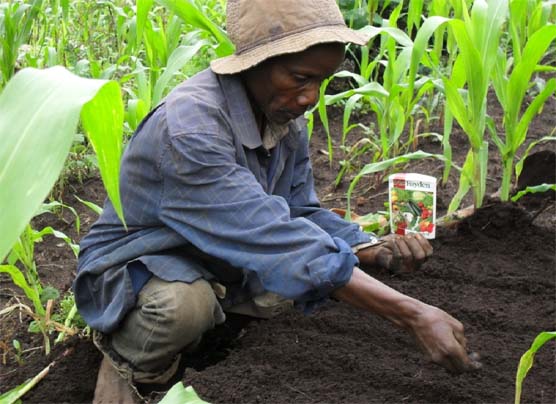Project // Vision
Africa is besieged by a malaria epidemic that is devastating the sub-Saharan population. Between 350 and 500 million clinical cases are diagnosed every year according to the World Health Organization killing about 5 000 people a day most of which are young children, pregnant women and AIDS patients – as much as 90% of the deaths are recorded in sub-Saharan Africa.
In Burundi, malaria is the leading cause of mortality. The most serious form is caused by plasmodium falciparum that is transmitted by the bite of the female Anopheles mosquito. While the disease is commonly associated with poverty, it also causes poverty thereby hindering economic development.
Protecting the sub-Saharan population from insect bites is a critical factor in reducing health costs for treatment and for drugs as well as for economic advancement. A new bio-pesticide that was approved by the US EPA in 2009 has been identified as an effective repellent against mosquitoes. This bio-pesticide is derived from the essential oil of the Nepeta Cataria plant. The plant will be cultivated, the oil extracted and decanted to concentrate the active ingredient against mosquitoes: all steps will be undertaken in Burundi and adjacent sub-Saharan countries.
Project phases:
- April 2011: Cultvation of Nepeta Cataria by the local population ( April 2011)
- July 2011: Extraction of the essential oil (July, 2011)
- January 2012: Production and distribution of the repellent: soaps, sprays, lotions
- July 2013: Commericalization: large scale cultivation, extraction, manufacture

Semis
Sowing the Nepeta Cataria seeds the Batwa (vulnerable population) village of Matara The planting began Thursday, 24 December 2010.
Budget : $15 million is necessary to produce 300 t/y of the repellent. The demonstration step requires $2 million for the frist two years.
